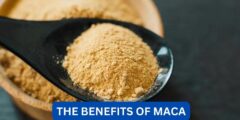Cinnamon is a popular spice that has been used for centuries in various cultures for its medicinal properties. It is derived from the inner bark of trees belonging to the genus Cinnamomum and is known for its distinct sweet and spicy flavor. While most people are familiar with cinnamon as a spice used in cooking and baking, it is also commonly consumed as a tea. Cinnamon tea is made by steeping cinnamon sticks or powder in hot water, and it has gained popularity in recent years due to its numerous health benefits. In this article, we will explore the benefits of cinnamon tea and why you should consider incorporating it into your daily routine.
Contents
History of Cinnamon Tea
Cinnamon has a long history of use in traditional medicine, dating back to ancient Egypt and China. It was highly valued for its medicinal properties and was used to treat a variety of ailments, including respiratory and digestive issues. In Ayurvedic medicine, cinnamon is considered a warming spice that can improve digestion and circulation. The use of cinnamon tea can be traced back to the 16th century when it was introduced to Europe by Portuguese explorers. It quickly gained popularity and was used as a remedy for various health conditions.
Read:what are the benefits of ginkgo bilobaNutritional Profile of Cinnamon Tea
Cinnamon tea is a rich source of antioxidants, which are compounds that help protect the body from damage caused by free radicals. It also contains essential oils, such as cinnamaldehyde, eugenol, and linalool, which give cinnamon its distinct aroma and flavor. Cinnamon tea is also a good source of minerals like manganese, iron, and calcium, as well as vitamins B1, B2, and C. It is low in calories and does not contain any fat, making it a healthy beverage choice.
Health Benefits of Cinnamon Tea
Cinnamon contains compounds that have anti-inflammatory properties, which can help reduce inflammation in the body. Chronic inflammation has been linked to various health conditions, including heart disease, diabetes, and cancer. By incorporating cinnamon tea into your diet, you can help reduce inflammation and potentially lower your risk of developing these diseases.
Regulates Blood Sugar Levels
Cinnamon has been shown to have a positive effect on blood sugar levels. It can help improve insulin sensitivity, which is essential for people with diabetes. Studies have also shown that cinnamon can lower fasting blood sugar levels and improve glycemic control in people with type 2 diabetes. Drinking cinnamon tea regularly can help regulate blood sugar levels and reduce the risk of developing diabetes.
Read:What are the benefits of eggplant?Boosts Immune System
Cinnamon is rich in antioxidants, which can help boost the immune system and protect the body from infections and diseases. It has also been shown to have antimicrobial properties, which can help fight against bacteria, viruses, and fungi. Drinking cinnamon tea can help strengthen your immune system and keep you healthy.
Improves Digestion
Cinnamon has been used in traditional medicine to improve digestion and relieve digestive issues such as bloating, gas, and diarrhea. It can help stimulate the production of digestive enzymes, which aid in the breakdown of food. Cinnamon tea can also help reduce inflammation in the digestive tract, making it beneficial for people with conditions like irritable bowel syndrome (IBS) and Crohn’s disease.
Promotes Heart Health
Cinnamon has been shown to have a positive effect on heart health. It can help lower blood pressure and cholesterol levels, which are risk factors for heart disease. Studies have also shown that cinnamon can improve blood flow and reduce the risk of blood clots. By drinking cinnamon tea, you can help improve your heart health and reduce the risk of heart disease.
Relieves Menstrual Cramps
Cinnamon has been used in traditional medicine to relieve menstrual cramps and other symptoms of menstruation. It has been shown to have anti-inflammatory and antispasmodic properties, which can help reduce pain and discomfort during menstruation. Drinking cinnamon tea can help alleviate menstrual cramps and make periods more manageable.
Read:what are the benefits of ice bathsAids in Weight Loss
Cinnamon has been shown to have a positive effect on weight loss. It can help regulate blood sugar levels, which can prevent cravings and overeating. Cinnamon also contains compounds that can help boost metabolism and burn fat. By incorporating cinnamon tea into your weight loss journey, you can potentially see better results.
How to Make Cinnamon Tea
Cinnamon tea is easy to make and can be enjoyed hot or cold. Here’s a simple recipe to make cinnamon tea at home:
- Boil 1 cup of water in a saucepan.
- Add 1 cinnamon stick or 1 teaspoon of cinnamon powder to the water.
- Let it simmer for 10-15 minutes.
- Strain the tea into a cup.
- You can add honey or lemon for added flavor.
You can also make a larger batch of cinnamon tea and store it in the fridge for a refreshing iced tea option.
Precautions and Side Effects
While cinnamon tea has numerous health benefits, it is essential to consume it in moderation. Excessive consumption of cinnamon can lead to liver damage and other adverse effects. It is also not recommended for pregnant women as it may stimulate contractions. If you are taking any medications, it is best to consult with your doctor before incorporating cinnamon tea into your diet.
Conclusion:
Cinnamon tea is a delicious and healthy beverage that offers numerous health benefits. From reducing inflammation to promoting heart health, this spice has been used for centuries for its medicinal properties. By incorporating cinnamon tea into your daily routine, you can improve your overall health and well-being. So, the next time you reach for a cup of tea, consider trying cinnamon tea for a flavorful and nutritious alternative.









